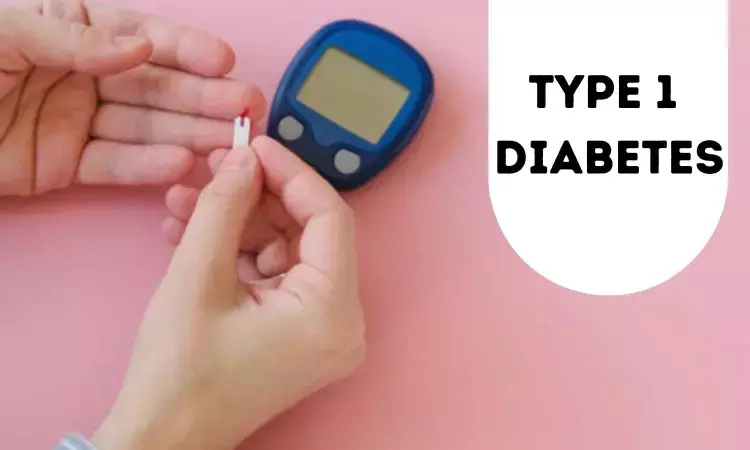- Home
- Medical news & Guidelines
- Anesthesiology
- Cardiology and CTVS
- Critical Care
- Dentistry
- Dermatology
- Diabetes and Endocrinology
- ENT
- Gastroenterology
- Medicine
- Nephrology
- Neurology
- Obstretics-Gynaecology
- Oncology
- Ophthalmology
- Orthopaedics
- Pediatrics-Neonatology
- Psychiatry
- Pulmonology
- Radiology
- Surgery
- Urology
- Laboratory Medicine
- Diet
- Nursing
- Paramedical
- Physiotherapy
- Health news
- Fact Check
- Bone Health Fact Check
- Brain Health Fact Check
- Cancer Related Fact Check
- Child Care Fact Check
- Dental and oral health fact check
- Diabetes and metabolic health fact check
- Diet and Nutrition Fact Check
- Eye and ENT Care Fact Check
- Fitness fact check
- Gut health fact check
- Heart health fact check
- Kidney health fact check
- Medical education fact check
- Men's health fact check
- Respiratory fact check
- Skin and hair care fact check
- Vaccine and Immunization fact check
- Women's health fact check
- AYUSH
- State News
- Andaman and Nicobar Islands
- Andhra Pradesh
- Arunachal Pradesh
- Assam
- Bihar
- Chandigarh
- Chattisgarh
- Dadra and Nagar Haveli
- Daman and Diu
- Delhi
- Goa
- Gujarat
- Haryana
- Himachal Pradesh
- Jammu & Kashmir
- Jharkhand
- Karnataka
- Kerala
- Ladakh
- Lakshadweep
- Madhya Pradesh
- Maharashtra
- Manipur
- Meghalaya
- Mizoram
- Nagaland
- Odisha
- Puducherry
- Punjab
- Rajasthan
- Sikkim
- Tamil Nadu
- Telangana
- Tripura
- Uttar Pradesh
- Uttrakhand
- West Bengal
- Medical Education
- Industry
Low-Dose Glucagon Reduces Exercise-Induced Hypoglycemia in Type 1 Diabetes, finds study

Exercise can dramatically lower blood glucose levels and trigger hypoglycemia in people with type 1 diabetes (T1D), even when insulin doses are adjusted. A new systematic review and meta-analysis, published in Diabetes Care, found that low-dose glucagon effectively reduces the risk of exercise-induced hypoglycemia and time spent below target glucose range (TBR) in this population.
The authors pooled data from 12 randomized and crossover trials involving 248 adolescents and adults with T1D. Low-dose glucagon reduced the risk of hypoglycemic events by about 46%, with a pooled risk ratio of 0.54 (95% CI 0.35–0.84). It also lowered TBR by an average of approximately 3.9 percentage points (95% CI –6.27 to –1.54), indicating a meaningful reduction in time spent with glucose below 3.9 mmol/L. Despite these promising effects, low-dose glucagon was associated with a higher rate of mild adverse events-a pooled risk ratio of 2.75 (95% CI 1.07–7.08)-though most were mild gastrointestinal symptoms or injection-site discomfort.
The authors emphasize that optimizing the dose and timing of glucagon relative to different exercise types and durations requires further investigation to ensure real-world effectiveness and safety.
They also note varying methodologies across included studies, suggesting cautious interpretation and the need for standardized protocols in future work. Clinically, this analysis supports using low-dose glucagon as an adjunctive strategy for preventing exercise-induced hypoglycemia in T1D, especially for active individuals facing daily glucose fluctuations. It can offer an alternative to carbohydrate loading-which may interrupt activity or risk hyperglycemia-while maintaining glycemic stability.
However, patients and clinicians should balance benefits against mild side effects and await more data on dosing strategies.
Dr. Shravani Dali has completed her BDS from Pravara institute of medical sciences, loni. Following which she extensively worked in the healthcare sector for 2+ years. She has been actively involved in writing blogs in field of health and wellness. Currently she is pursuing her Masters of public health-health administration from Tata institute of social sciences. She can be contacted at editorial@medicaldialogues.in.
Dr Kamal Kant Kohli-MBBS, DTCD- a chest specialist with more than 30 years of practice and a flair for writing clinical articles, Dr Kamal Kant Kohli joined Medical Dialogues as a Chief Editor of Medical News. Besides writing articles, as an editor, he proofreads and verifies all the medical content published on Medical Dialogues including those coming from journals, studies,medical conferences,guidelines etc. Email: drkohli@medicaldialogues.in. Contact no. 011-43720751


